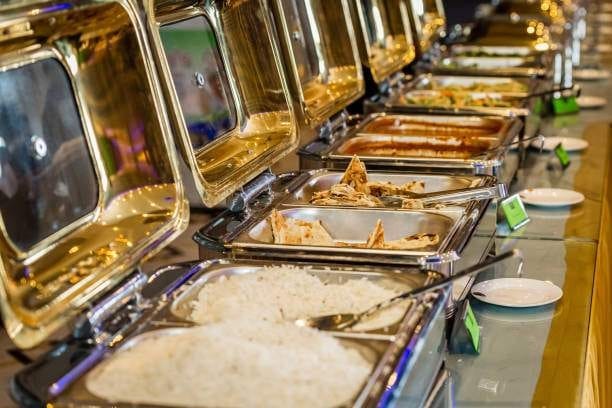Complete Hotel Operations Guide 2025: Meaning, Types

- December 24, 2024
Running a hotel is no small feat. It’s not just about offering beds and meals; it’s about crafting a guest experience that makes people feel at home. At the heart of this is your hotel’s operations. Every smooth check-in along with a perfectly-timed meal hinges on a system that works like clockwork.
The results are magical when operations flow seamlessly. Guests feel cared for, staff stay productive, and costs remain in check. But what is the impact of poorly managed operations? That’s a recipe for frustration—for everyone. This guide dives into what hotel operations are, why they matter, and how modern tools can redefine them for the better.
How Hotel Operations Impact Guest Experiences?
Think about your last hotel stay. Was it a breeze, or did you encounter hiccups like long waits or an unclean room? Hotel operations directly impact the guest experience from start to finish. A smooth booking process sets the tone before guests even arrive. Responsive service and clean facilities cement the impression during their stay.
Research shows that 75% of travelers return to hotels with exceptional service. Guests walk away disappointed when operations falter. Leveraging technology like mobile check-ins ensure every guest leaves with a smile.
What Exactly Are Hotel Operations?
Hotel operations encompass every process required to keep the property running smoothly. These systems must work together seamlessly from reservations and housekeeping to food services and maintenance. A strong operational backbone ensures both efficiency and quality in day-to-day activities.
Modern tools like cloud-based property management systems (PMS) make this coordination easier than ever. They centralize key tasks as well as improve communication across departments. And what is the result? A well-oiled machine that prioritizes guest satisfaction and brand reputation.
The Four Pillars of Hotel Operations
Here are the four pillars of hotel operations.
Front Office Sets the Tone
The front office is the first point of contact for guests. From check-ins to inquiries, it’s where impressions are made. A friendly greeting is great. But efficiency is even better.
That’s where technology steps in. Self-service kiosks enable guests to check in quickly and avoid long waits. Cloud-based reservation systems ensure real-time updates. They prevent overbookings and availability conflicts. A streamlined front office isn’t just convenient—it’s essential for building trust.
Housekeeping is the Unsung Hero
Housekeeping is the backbone of guest satisfaction. A spotless room signals care and professionalism. Anything less can undermine trust of your guests. But managing dozens—or hundreds—of rooms daily is no small feat.
Tools like housekeeping management software simplify this task. They assign cleaning schedules, track progress, and send real-time alerts for urgent needs. For example, staff can be notified the moment a guest checks out. This ensures quicker room turnover. Clean, well-maintained rooms aren’t just a nice touch—they’re a must.
Food and Beverage: Feeding Memories
The food and beverage (F&B) department is often where hotels shine—or stumble. A well-run F&B operation can elevate a guest’s experience. On the other hand, delays or inconsistencies can leave them disappointed.
Point-of-sale (POS) systems integrated with inventory tools make all the difference. They help track stock levels, reduce waste, and ensure smooth operations during peak hours. Mobile ordering platforms add another layer of convenience. These platforms allow guests to order room service or reserve tables with ease.
Maintenance: Keeping the Engine Running
Imagine checking into a hotel only to find a broken AC or a leaky faucet. Maintenance is crucial for ensuring guests enjoy a hassle-free stay. But it’s not just about fixing things when they break. It is about preventing problems before they occur.
Maintenance management software enables proactive facility care. It tracks repair schedules as well as sends reminders for routine inspections. Hotels can minimize disruptions and keep guests comfortable by staying ahead of problems.
The Role of Technology in Hotel Operations
Technology has revolutionized hotel operations. It is moving them far beyond manual checklists and paper logs. Modern tools streamline tasks and provide actionable insights that were previously unattainable.
Technology touches every aspect of a guest's experience from check-in to check-out. It allows hotels to deliver seamless and personalized service while boosting operational efficiency.
1: Boost in Efficiency
Automation has redefined efficiency in the hospitality industry. Repetitive tasks like room assignments, housekeeping schedules, and inventory tracking are now handled by software. It allows staff to focus on delivering exceptional guest experiences.
Technology minimizes time spent on mundane tasks. This ensures quicker responses to the needs of guest. For example, automated maintenance alerts help resolve issues before they impact the guest. This enhanced efficiency not only reduces workload but also boosts employee satisfaction by eliminating tedious manual processes.
2: Error Reduction
Centralized systems are a game-changer for reducing human errors that can disrupt operations. Booking mix-ups, scheduling conflicts, or miscommunication between departments can significantly impact guest satisfaction. Technology ensures real-time data updates and communication.
For instance, integrated property management systems streamline room availability, pricing, and special requests. This precision leads to smoother operations and fewer mistakes. It safeguards the hotel's reputation and improves overall guest loyalty.
3: Guest Personalization
AI-driven tools enable unparalleled levels of guest personalization. They transform how hotels cater to individual preferences. Hotels can anticipate guest needs by analyzing booking histories along with feedback.
Whether it’s arranging a preferred room temperature or suggesting tailored dining options, personalization enhances the guest experience. Such thoughtful touches make guests feel valued. It helps in fostering loyalty and encouraging repeat visits. Technology allows hotels to turn data into memorable experiences.
4: Sustainability Gains
Sustainability is now a priority for both guests and hotel operators. Technology plays a vital role in achieving eco-friendly goals. Innovations like smart thermostats, energy-efficient HVAC systems, and motion-activated lighting reduce energy consumption without compromising comfort.
Water-saving technologies in laundry and plumbing also make significant impacts. These advancements help hotels cut costs while showcasing their commitment to environmental responsibility. Hotels not only reduce their carbon footprint but also attract eco-conscious travelers by using green technology.
Deep Dive – Optimizing Key Areas with Technology
-
Housekeeping Tools
Housekeeping isn’t just about tidying up—it’s about delivering consistency. Tools like task management software ensure rooms are cleaned on schedule and to standard. Alerts for high-priority tasks keep the team focused on what matters most.
Clean rooms form the foundation of a guest’s perception. Hotels can consistently meet—and exceed—expectations by investing in housekeeping technology.
-
Front Office Innovations
The front desk can be a bottleneck—or a breeze. Modern tools simplify everything from reservations to check-ins. Cloud-based PMS platforms provide real-time updates. The self-check-in kiosks and mobile apps eliminate long lines.
-
F&B Operations
POS systems help manage orders, track inventory, and forecast demand. Mobile apps for ordering allow guests to request meals at their convenience. This improves both service speed and accuracy.
-
Proactive Maintenance
Facility management isn’t glamorous, but it’s vital. Maintenance software helps hotels stay proactive by scheduling repairs and flagging potential issues. For example, routine HVAC inspections before peak seasons can prevent costly breakdowns. A well-maintained property builds trust and ensures guests enjoy a seamless stay.
-
Proactive Maintenance
Facility management isn’t glamorous, but it’s vital. Maintenance software helps hotels stay proactive by scheduling repairs and flagging potential issues. For example, routine HVAC inspections before peak seasons can prevent costly breakdowns. A well-maintained property builds trust and ensures guests enjoy a seamless stay.
Why Sustainability Matters in Hotel Operations?
Sustainability is no longer optional—it’s a priority for many travelers. Eco-conscious practices not only attract guests but also reduce operational costs.
Motion-sensor lighting, water-saving devices, and energy-efficient HVAC systems cut utility bills while shrinking your carbon footprint. Even housekeeping can go green by using eco-friendly cleaning supplies. Technology makes it easier to track as well as optimize resource usage. It ensures your hotel operates sustainably without sacrificing quality.
Choosing the Right Hotel Operations Software
Selecting the right tools can feel overwhelming, but it’s worth the effort. Look for solutions that integrate across departments and offer real-time updates. Specific platforms provide all-in-one solutions. You can expect features like front desk management as well as maintenance.
Advanced analytics and mobile accessibility make these tools versatile for properties of all sizes. You streamline operations by investing in the right software.
Final Thoughts – Success Through Smart Operations
Effective operations lies at the heart of every great hotel experience. Every detail matters, from clean rooms to efficient front desk service. Technology isn’t just a bonus—it’s a necessity for staying competitive.
Investing in the right tools and strategies now ensures your hotel remains a guest favorite for years to come. After all, happy guests mean repeat business—and success that lasts well beyond 2025.


